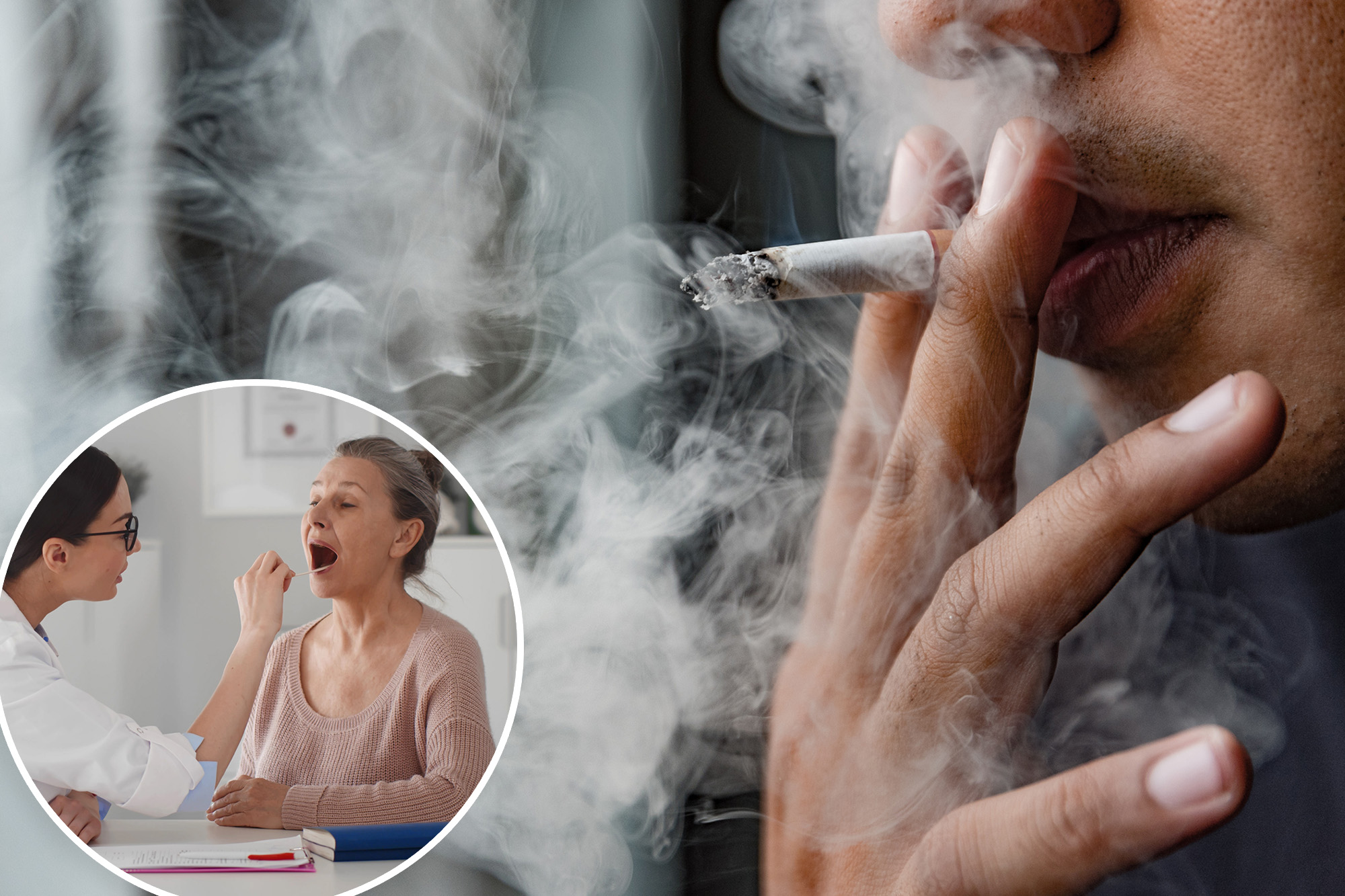Lifestyle
Smoking and Cannabis Use Surge Oral Cancer Risk by 624%

Research from UC San Diego reveals that pairing cigarette smoking with cannabis use significantly elevates the risk of developing oral cancer. The study indicates that individuals who smoke both cigarettes and marijuana face a staggering 624% increased likelihood of contracting oral cancer within five years when compared to cigarette smokers who do not use cannabis.
The findings, published in the September edition of Preventive Medicine Reports, underscore the dangers associated with cannabis smoke. According to Raphael Cuomo, an associate professor in the Department of Anesthesiology at UC San Diego School of Medicine and a member of the UC San Diego Moores Cancer Center, “Cannabis smoke contains many of the same carcinogenic compounds found in tobacco smoke, which have known damaging effects on the epithelial tissue that lines the mouth.”
Oral Cancer Risk Factors and Study Details
Oral cancer includes malignancies of the lips, tongue, gums, and the lining of the cheeks and mouth. The American Cancer Society estimates that nearly 60,000 new cases of oral cavity or oropharyngeal cancer will be diagnosed in the United States this year, resulting in approximately 12,800 deaths. Known risk factors for this type of cancer include tobacco use, chronic alcohol consumption, and infection with the human papillomavirus (HPV).
Cuomo’s team analyzed health data from over 45,000 oral cancer patients, focusing on 949 individuals diagnosed with cannabis use disorder. The researchers accounted for various factors, including age, sex, body mass index, and smoking status. Their results revealed that tobacco smokers grappling with cannabis addiction were significantly more susceptible to oral cancer.
Despite these concerns, the researchers noted that consuming cannabis in the form of edibles or beverages infused with THC (the active ingredient in cannabis) does not appear to carry the same oral cancer risk as smoking. This distinction highlights the potential dangers of smoking as a delivery method for both tobacco and cannabis.
Implications for Public Health and Future Research
Cuomo advises regular self-checks and dental exams for all cannabis users, emphasizing that early detection is vital. “Research is still evolving, so regular self-checks and dental exams remain wise for all cannabis users,” he stated. Early-stage oral cancers are often curable if caught in time.
The implications of this study are significant, prompting a call for greater awareness regarding oral health in substance use disorder treatment and counseling. The research also aligns with findings from a 2024 study conducted by the University of Southern California, which linked daily marijuana use to a three to five-fold increase in the risk of head and neck cancers.
Cuomo recommends consulting a dentist or an ear, nose, and throat specialist if individuals notice sores, ulcers, or red or white patches in their mouths that persist for over two weeks, particularly if accompanied by lumps, numbness, bleeding, or pain while swallowing.
“Early evaluation is critical because oral cancers caught in the first stage are usually curable,” he concluded, pointing to the necessity for continued research into the long-term effects of cannabis use on oral health.
-

 Lifestyle3 months ago
Lifestyle3 months agoLibraries Challenge Rising E-Book Costs Amid Growing Demand
-

 Sports3 months ago
Sports3 months agoTyreek Hill Responds to Tua Tagovailoa’s Comments on Team Dynamics
-

 Sports3 months ago
Sports3 months agoLiverpool Secures Agreement to Sign Young Striker Will Wright
-

 Lifestyle3 months ago
Lifestyle3 months agoSave Your Split Tomatoes: Expert Tips for Gardeners
-

 Lifestyle3 months ago
Lifestyle3 months agoPrincess Beatrice’s Daughter Athena Joins Siblings at London Parade
-

 World3 months ago
World3 months agoWinter Storms Lash New South Wales with Snow, Flood Risks
-

 Science3 months ago
Science3 months agoTrump Administration Moves to Repeal Key Climate Regulation
-

 Science2 months ago
Science2 months agoSan Francisco Hosts Unique Contest to Identify “Performative Males”
-

 Business3 months ago
Business3 months agoSoFi Technologies Shares Slip 2% Following Insider Stock Sale
-

 Science3 months ago
Science3 months agoNew Tool Reveals Link Between Horse Coat Condition and Parasites
-

 Sports3 months ago
Sports3 months agoElon Musk Sculpture Travels From Utah to Yosemite National Park
-

 Science3 months ago
Science3 months agoNew Study Confirms Humans Transported Stonehenge Bluestones









